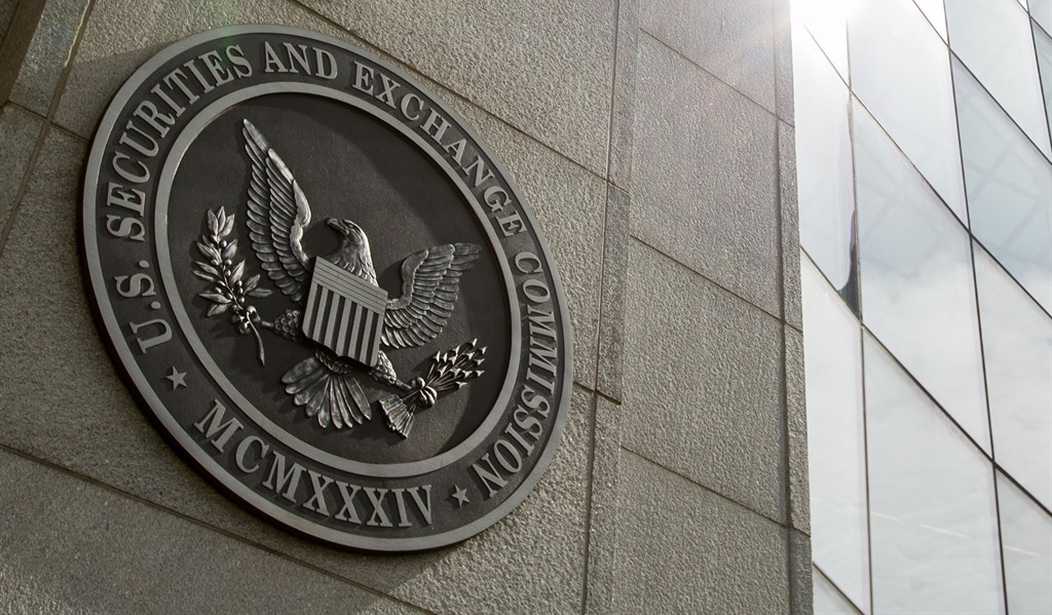“The price of liberty is eternal vigilance.” Some attribute this aphorism to Thomas Jefferson, others to the abolitionist Wendell Phillips, depending on which search engine or AI model one uses. Regardless of its true origin, its truth abides.
The genius of America’s constitutional order with its separation of powers, checks and balances, and republican principles, is the structural bulwark against the concentration of power in any of the three branches of our federal government. But in recent decades, a concentration of power in the private sector, particularly in finance and technology, has emerged as a threat to liberty which left unchecked could avert constitutional scrutiny. Worse yet, our government could outsource censorship to private parties either as willing co-conspirators or as compliant subjects of regulatory coercion.
It should come as no surprise then that Alliance Defending Freedom, the non-profit advocacy organization dedicated to “advancing every person’s God-given right to live and speak the truth,” would enter the fray of corporate board rooms and shareholder meetings with the same vigilance they enter courtrooms around the world. With active litigation on five continents, a string of 15 victories at the U.S. Supreme Court in the last 14 years, and potentially three more this year and next, ADF’s formidable legal and policy prowess is delivering similarly stunning results in the corporate sector.
The ADF-backed shareholder coalition filed 74 resolutions to be considered at annual shareholder meetings this year. The resolutions addressed 14 issue areas, including AI censorship, de-banking, financial surveillance, the abortion drug mifepristone, child sex abuse material, and more. Filing these resolutions led to high-level negotiations with executives and 22 corporate policy and behavior changes at some of the most powerful institutions in the world: Meta, Walmart, AT&T, Chase, Insperity, Verizon, Blackrock, Johnson & Johnson, Mastercard, IBM, Morgan Stanley, Citigroup, Comcast, and PepsiCo to name a few. Many of these policy changes are tied directly to ADF’s Viewpoint Diversity Index standards.
Recommended
Several of these corporate titans appealed to the U.S. Securities and Exchange Commission to keep their shareholders from ever seeing the issues raised by resolution. ADF successfully countered the appeals and won 14 rulings from the SEC. Legal engagement on 22 SEC matters in just three-and-a-half months successfully established new legal precedents that ensure shareholders can raise concerns through the proxy process about de-banking, partnerships with left-wing activists like the Human Rights Campaign and Southern Poverty Law Center, and discrimination against religious employee groups.
When corporations like IBM lost their appeal at the SEC, they agreed to policy changes in exchange for withdrawal of the resolutions.
ADF’s alliance-building was key to its success. ADF partnered with 28 different institutions or individuals filing resolutions this year, including several influential institutions filing for the first time. The state of Oklahoma, Heritage Foundation, Guidestone, Georgia Baptist Foundation, the Catholic Diocese of Fort Worth, and individual investors filed as well, and their courage led to critical wins at JP Morgan Chase, Meta, Blackrock, Mastercard, and Walmart. This coalition of shareholders now includes asset managers responsible for over $250 billion in assets under management. The results were substantial.
This March, after months of negotiation with ADF and in exchange for the withdrawal of a shareholder resolution, Chase agreed to adopt language in its Code of Conduct that will protect customers against future instances of political and religious de-banking. Marking a major milestone in ongoing negotiations with Chase, the policy changes specify that Chase will “not tolerate discrimination” against employees, customers, suppliers, contractors, or others affiliated with Chase “based on … religion, religious affiliation, or religious views … [or] political opinions, speech or affiliations.”
Major companies including IBM, PepsiCo, Mastercard, and Johnson & Johnson all distanced themselves from the censorship activities of the now-defunct Global Alliance for Responsible Media. These companies, along with Comcast (NBC Universal and Peacock), each adopted ADF-drafted advertising policies aimed at protecting religious and political views in advertising.
In response to shareholder engagement and the resolution process, Walmart and Kroger confirmed they were not currently planning to dispense the abortion drug mifepristone. These are key victories as abortion advocates are heavily pressuring these companies to stock the drug. ADF has spearheaded campaigns to encourage these and other companies to reject this pressure.
As the (Pride) month of June draws to a close, consumers may have noticed that the previously inescapable onslaught of corporate virtue-signaling now seems to be a more muted palette of the rainbow. But, despite the successes, the Viewpoint Diversity Index demonstrates there is still work to be done. Certainly, there are still companies who insist on selling a double shot of sexual revolution with your coffee order or a complimentary symbolic homily about the “equality” of men invading women’s spaces when you buy groceries or household goods. But the cultural tide is turning because the economic free market and the free market of ideas are working together, prodded by vigilant advocates for liberty.
Lathan Watts is vice president of public affairs for Alliance Defending Freedom (@ADFLegal).

























Join the conversation as a VIP Member